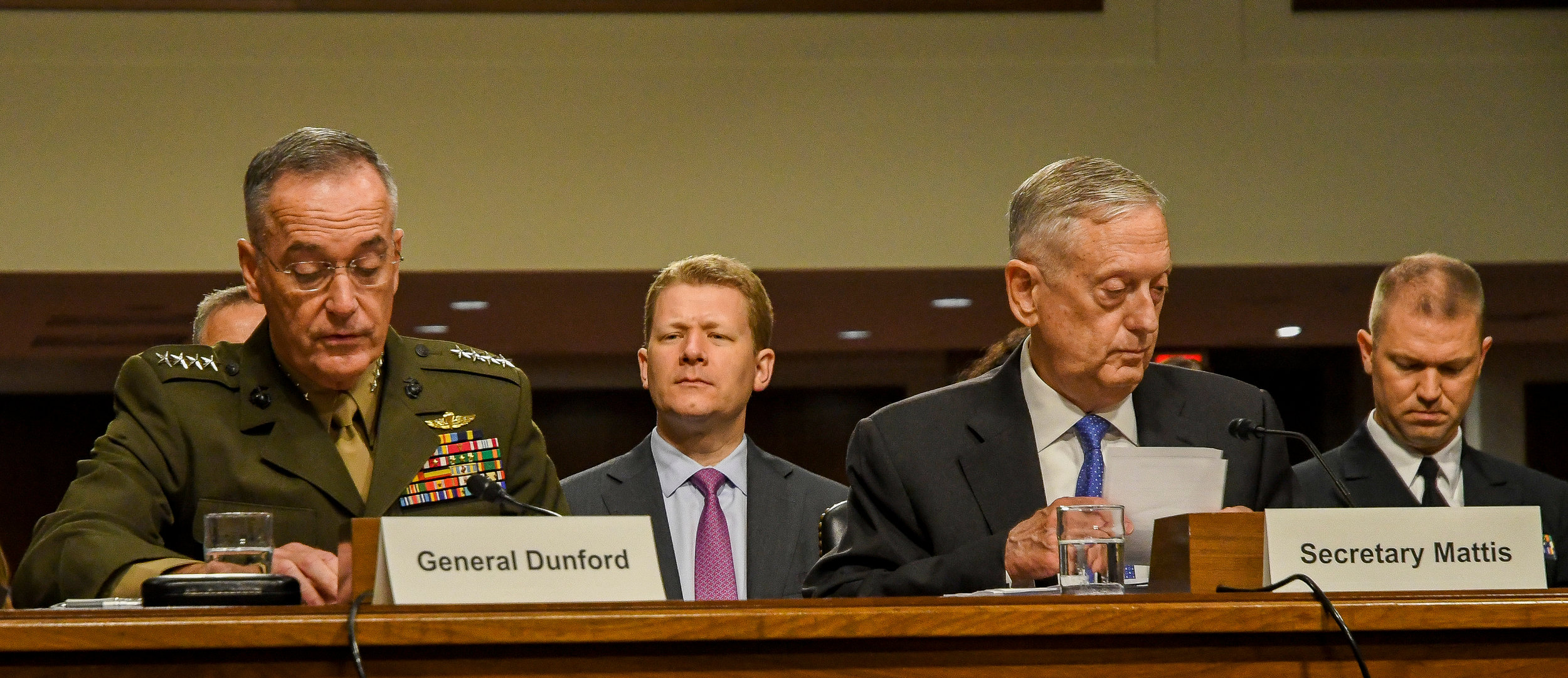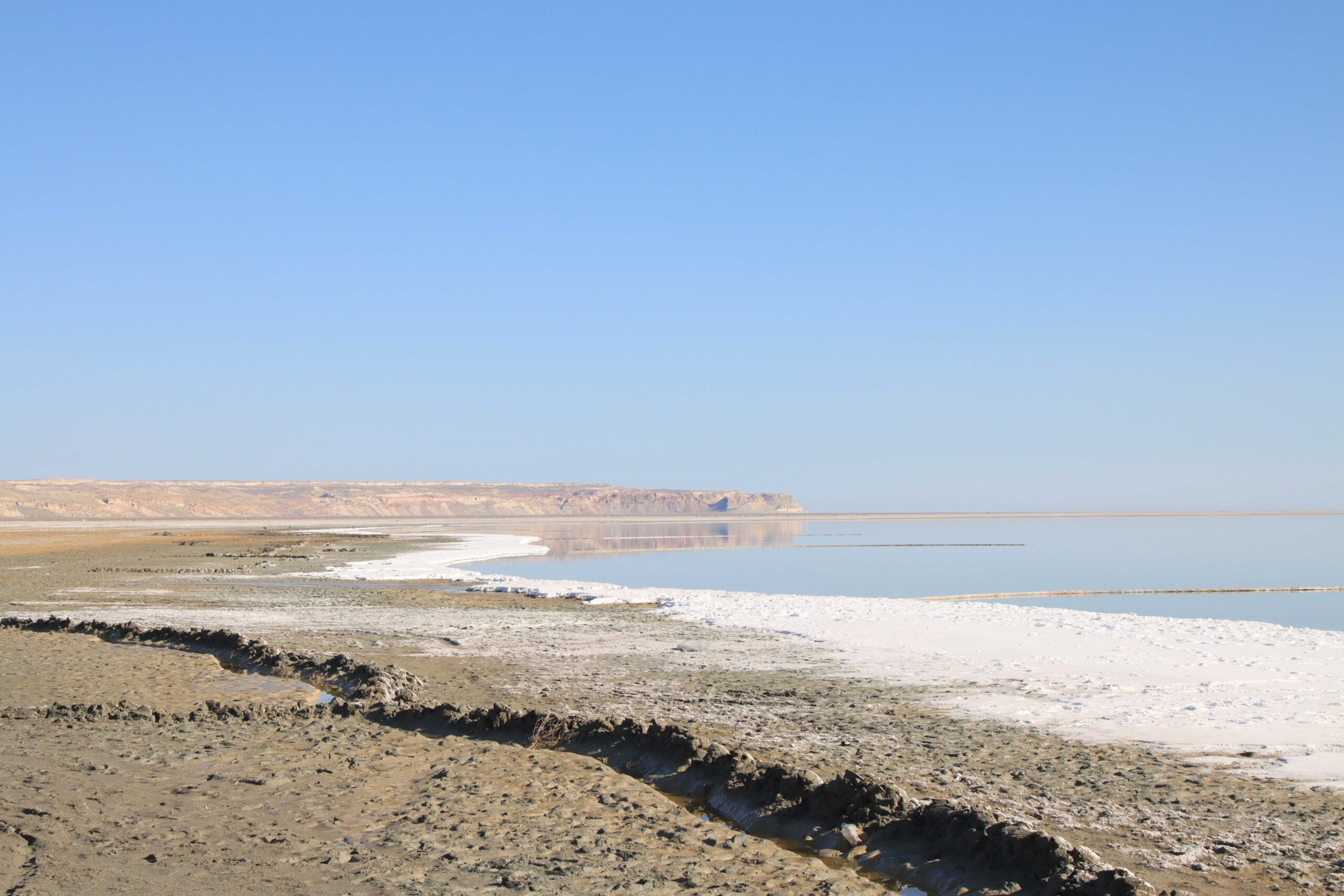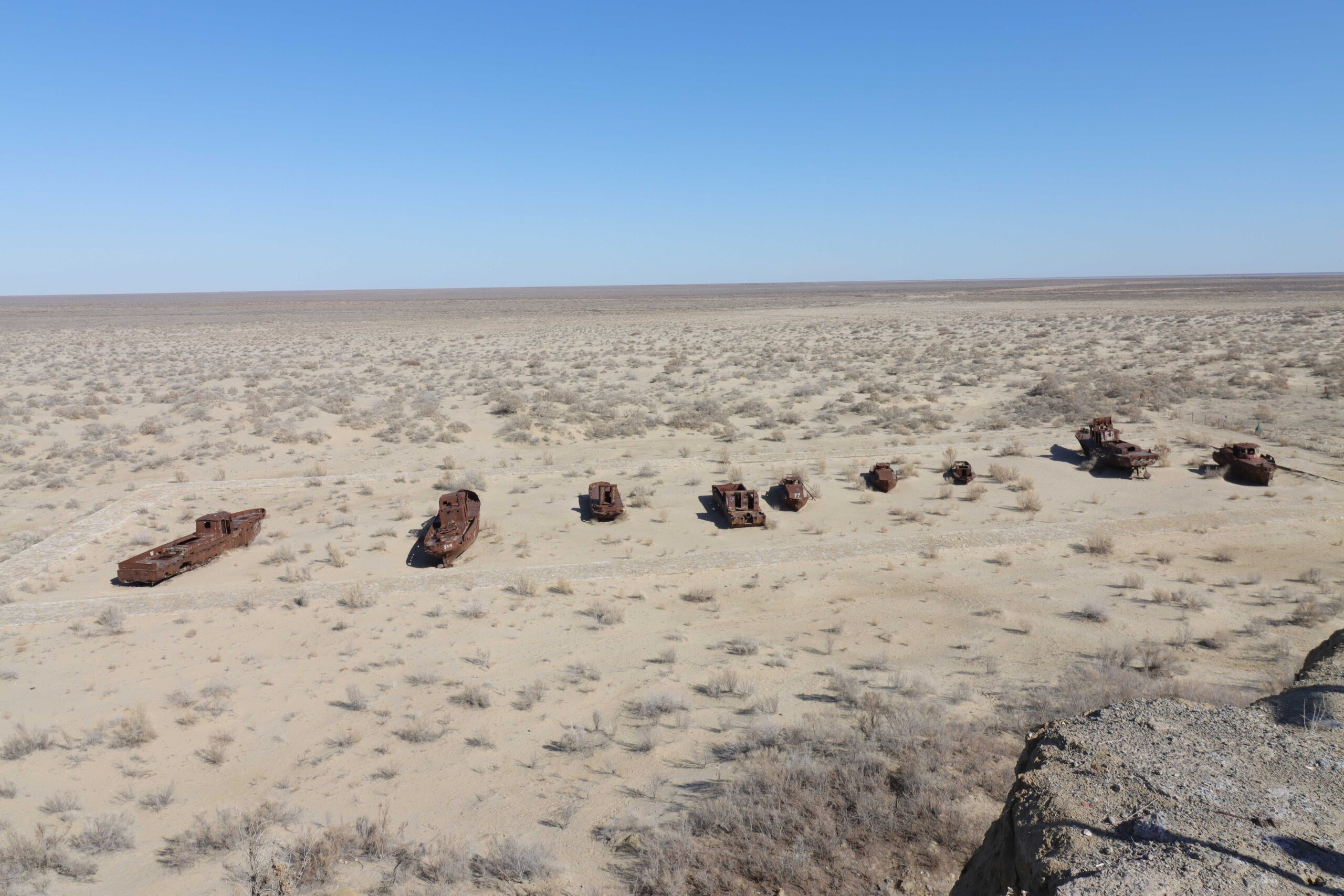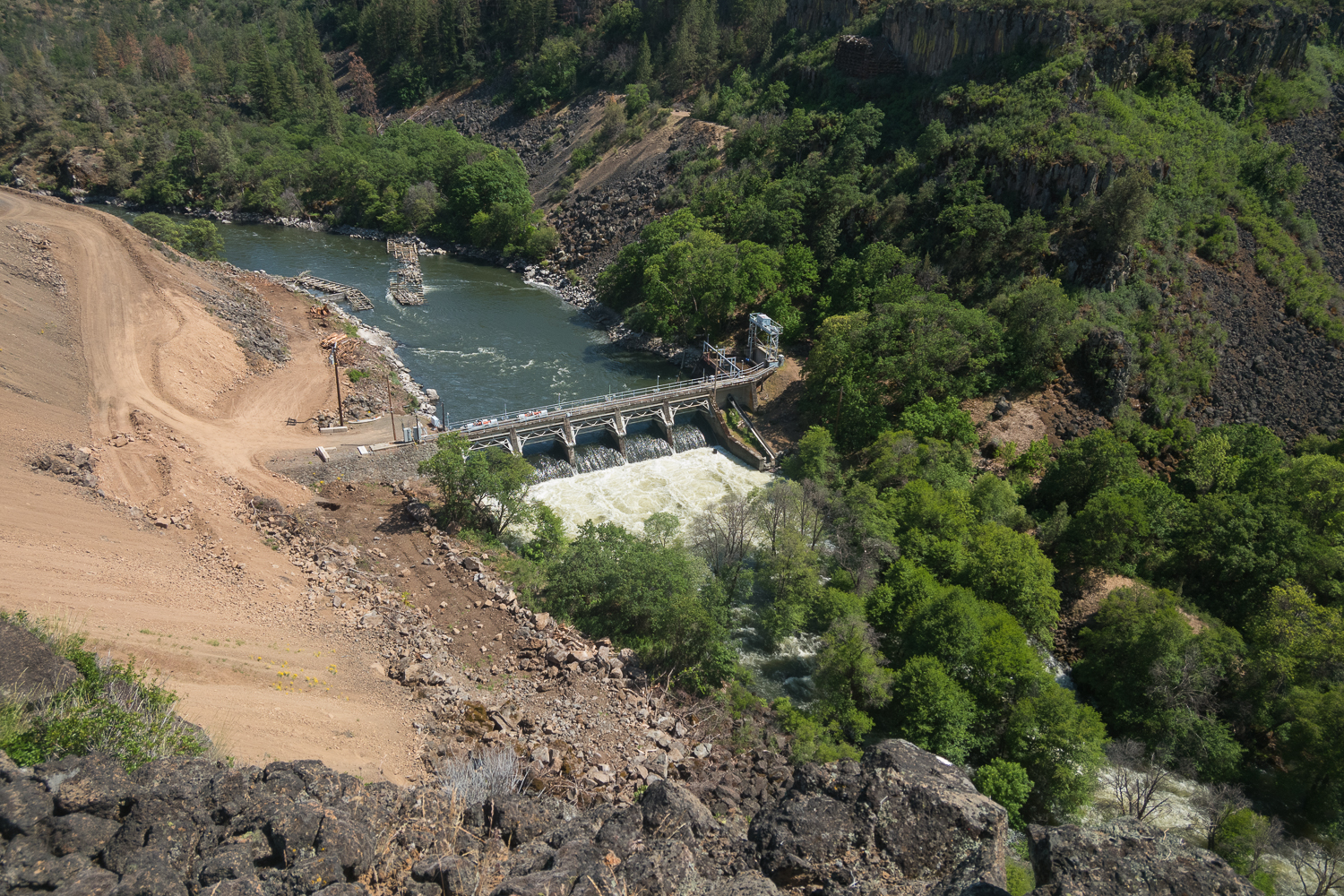In a 180 degree turn, President Trump seems to be second-guessing a previous decision he made to designate climate change, whether one thinks it’s human-caused or human-accelerated, as a threat to the national security of the United States. He signed this into law in the National Defense Authorization Act of 2017 during his second year in office.
In section 335, titled: Report on Effects of Climate Change on Department of Defense, several former and standing Chiefs of Staff and Secretaries of Defense give recommendations on how climate change, foreign and domestic have the capabilities of severely impacting national security.
Former Chief of Staff of the U.S. Army Gordon Sullivan has stated: ‘‘Climate change is a national security issue. We found that climate instability will lead to instability in geopolitics and impact American military operations around the world”.
The report carries on from fire and brimstone predictions such as stating that climate change would produce “new sources of deprivation, rage, and instability,” as well as more payroll-type issues such as the case of a radar installation built upon an atoll near the Marshal Islands which is slated to be underwater within 20 years.
Costing the US taxpayers 1 billion dollars, it would be just one of 128 military installations both foreign and domestic that would have to either shut down or be relocated based on rising sea levels. The bill also includes the “sense of congress,” which hovers much in the same place as individuals such as Secretary of Defense James Mattis, and Chairman of the Joint Chiefs of Staff, Joseph Dunford.
Developments in technology and their subsequent implementation have seen the Army and other branches of the United States Armed Forces shift dramatically to a greener policy, stating similar considerations about the dangers of climate change.
Washington DC. USA, June 13, 2017. PICTURED: Secretary of Defense James Mattis and Army Chief of Staff General Dunford, take questions in appropriations committee. Mattis and Dunford both agree that climate change is a significant national security threat.
Changes to a Change of Heart
In February 2019, President Trump announced he was putting together a panel of scientists to investigate the claims and reports that climate change is a threat to national security. It would be a difficult case to argue that President Trump considers climate change an important issue in his America-first platform punctuated on spending-increases, environmental rollbacks, and continuation of the wars he claimed he would end.
On June 1st 2017, Trump pulled out of the Paris Agreement, an international collaboration towards the advancement of climate-smart policy, and a reduction in world greenhouse gas emissions.
Strangely, this was only about 5 months before he signed the National Defense Authorization Act of 2017, in which most military brass and all of congress agreed that climate change was both happening, potentially catastrophic, and a danger to the very existence of the United States.
Now again, his opinions seem to have shifted; and heading the climate panel is Paul C. Robinson. Dr. Robinson is not a person to be found wheeling and dealing between the houses of congress or the hotel lobbies in Washington D.C. He’s spent most of his life working on, researching, and developing nuclear weapons.
It was Paul Robinson who oversaw talks with the Soviet Union regarding nuclear weapons testing in Geneva between 1988 and 1990.
In November of 2018, Trump would have received the 4th National Climate Assessment, a government commissioned meta-analysis involving “a team of more than 300 federal and non-federal experts—including individuals from federal, state, and local governments, tribes and Indigenous communities, national laboratories, universities, and the private sector”.
This report comes every 4 years and is overseen by the National Oceanic and Atmospheric Administration. It involves only studies that have gone through the rigors of peer-review, while also using certain projection and modeling tools to detail the extrapolation of various existing datasets.
Yet still, Trump would appear to remain unconvinced. Robinson spends most of his time when appearing before the public eye discussing the dangers of another perceived Cold War, and the resulting nuclear apocalypse should the United States lose focus.
A Few Good Men
Another member of Trump’s new panel would be Dr. William Happer, a Princeton physicist who gained public notoriety as head of the CO2 Coalition, an organization that promotes CO2 as a benefit to mankind and the planet because of it being used as energy for plants.
Carbon dioxide is one of the principal greenhouse gasses which for decades have been hypothesized for causing the warming of the climate.
Another member of the CO2 Coalition is a man called Harrison Schmitt who sits on the board of directors. He rejected the idea of climate change and climate science when he served as Chairman of the NASA Advisory Council under the George W. Bush administration.
Paul Robinson, who now heads the panel of experts, was present on the same NASA council as William Happer’s colleague at the CO2 Coalition, Schmitt, while Happer now joins Robinson to hire independent scientists to challenge the claim that climate change is a threat to national security.
New York City, USA, February 17th, 2018. William Happer speaking with attendees at the 2018 Young Americans for Liberty New York City Spring Summit.
Red, White, and Blue….and Green
Since the announcement of the panel by President Trump, 58 former and standing national security advisors and military leaders have denounced the climate change panel, urging him to return to his original frame of mind when he signed the DOD authorization in 2017. The signers invoke four presidential administrations worth of collected information and experience.
Another letter from February 28th written by the Senate Committee on Energy and Commerce to President Trump raises concern that the National Security Council panel will not be subject to Federal Advisory Committee laws, allowing for the total covert appointment of any of its members.
The letter continues stating that William Happer is entirely unqualified to sit on such a panel, based on the fact that he has not studied things like meteorology or other atmospheric and earth sciences, but is rather an atomic physicist. The letter brings up a statement he made regarding his stance on CO2: “The demonization of carbon dioxide is just like the demonization of the poor Jews under Hitler”.
Perhaps the curious case of the NSC Panel on climate change and national defense, given that it includes two experts on nuclear science, is an attempt to push an agenda of nuclear power reliance. This seems unlikely however, as there are already 60 nuclear power plants in the United States, and one could imagine that since nuclear reactors produce very little if any greenhouse gases, climate change wouldn’t necessarily have to stand in opposite.
We’ll have to wait and see how the repeated pressure on President Trump by the defense community will affect this new policy direction.





